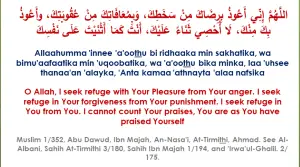Shab-e-Barat is one of the most revered nights for Muslims. It occurs in the mid of Shabaan (on the night between the 14th and 15th of Shabaan).
In the Arab world, other known names for the night are Laila-tul-Bara’ah or Laila-tul-nisfe-min-Shaban.
Significance of Shab-e-Barat in the light of Ahadith
The importance/significance of Shab-e-Barat is a subject of debate among Muslims. Not all, but many scholars among Ehl-e-Hadees and a few among the Deobandi schools of thought deny the significance of Shab-e-Barat.
However, Ibn Taymiyyah (the 7th-century Islamic scholar) says, “So many Ahadees and reports exist regarding the significance of the 15th night of Sha’ban that one is compelled to accept that this night does possess some virtue”.
For instance, the significance of Shab-e-Barat is evident in the saying of Prophet Muhammad PBUH. The Holy Prophet (PBUH) has given good tidings that on Shab-e-Barat,
Allah SWT descends to the lowest heaven/sky and He forgives more people than the numbers of hair on the sheep of Banu Qalb’.
Banu Qalb/Kalb was an Arab tribe that was renowned for its great flocks of sheep.
According to another narration by the Holy Prophet (PBUH)
Allah gazes at His creation on the fifteenth night of Shaban and then forgives all His slaves except for two types of people: those who attribute partners to Allah and those who have rancour for their fellow Muslims.
Ahmad
Hazrat Aisha (RA) has narrated that once the Prophet PBUH remained in Sajdah/prostration for so long during this night that she became afraid and touched his foot to make sure that he was still alive. The Prophet (PBUH) moved his foot and Hazrat Aisha (RA) heard him reciting the following prayer:

Allahumma inni a’udhu biridaka min sakhatika, wa a’udhu bimu’afatika min ‘uqubatika, wa a’udhu bika minka, la uhsi thana’an ‘alaika, Anta kama athnaita ‘ala nafsika.
O Allah, I seek refuge in Your pleasure from Your wrath, and I seek refuge in Your forgiveness from your punishment, and I seek refuge in You from You. I cannot enumerate Your praise, You are as You have praised Yourself
Another Hadees that elaborates on the significance of this night is that the Prophet (PBUH) said,
On this night, from sunset until dawn, Allah asks His servants, ′Is there anyone seeking forgiveness from Me so that I may forgive him? Is there anyone seeking provision from Me so I may provide for him? Is there anyone suffering so I may relieve his suffering?
Ibn Majah
Significance of the Month of Shabaan
Shaban is the 8th month in the Islamic calendar. The whole month of Shaban is full of blessings and significance. The Prophet PBUH used to observe fasting in Shaban more than any other month.
On the authority of Usamah ibn Zaid (RA) who said, ‘I said, “O Messenger of Allah, I do not see you fasting any month as much as Sha’baan”.
He (PBUH) replied,
That is a month that people neglect, between Rajab and Ramadan. It is a month in which actions are raised to the Lord of the worlds, and I love my actions to be raised whilst I am fasting.
An – Nisaa’i
The Prophet PBUH used to fast more frequently during Shaban. Muslims across the world fast on the 15th of Shaban which has two-pronged significance. One is that it is the Sunnah of the Prophet to fast in the month of Shaban, and secondly fasting on the 15th of Shaban after Shab-e-Barat makes it even more significant.
Salatul Tasbih (a nafl prayer) in Shab e Barat
The Holy Prophet PBUH has encouraged us to perform Nafl Prayers and make frequent Duas at night, particularly during the last third. This is the time when Allah SWT descends to the lowest heaven.
In this regard, praying in Shab-e-Baraat is more significant and many Muslims perform Salatul Tasbih on this night.
How to Perform Salatul Tasbih
It is very important for every Muslim to learn the method of Salatul Tasbih. Indeed, Salatul Tasbih is a very beautiful gift that Prophet PBUH has passed on to the Ummah.
We perform this salat in four Raka’at.
The tasbih for this prayer is; “Subhaan Allahi Wal Hamdulillahi Wa Laa ilaha illal Laahu Wallahu Akbar“.
- Start your prayer as you do regularly and in the first Rakat after reciting Sana, recite this tasbih 15 times.
- Then, recite Surah Fatiha and another Surah, and after that, recite this tasbih again 10 times.
- During Rukuh, after saying the prescribed Tasbihaat, again recite the tasbih 10 times.
- After standing up from Rukuh, recite the tasbih 10 times.
- Then in the first Sajda, after glorifications, again recite the tasbih 10 times.
- In the Jalsa (between the Sajda) recite the tasbih 10 times.
- Again recite the tasbih 10 times in the second Sajdah.
- Repeat this procedure in all four Raka’ats.
Frequently Asked Questions (FAQs)
The Prophet PBUH has mentioned some other categories of people who would not be forgiven on this night. Among those are included the people;
1. who have severed the ties of kinship
2. and who have disobeyed their parents.







[…] Shab e Barat – Blessings & Significance […]
[…] Blessings & Significance of Shab-e-Barat […]